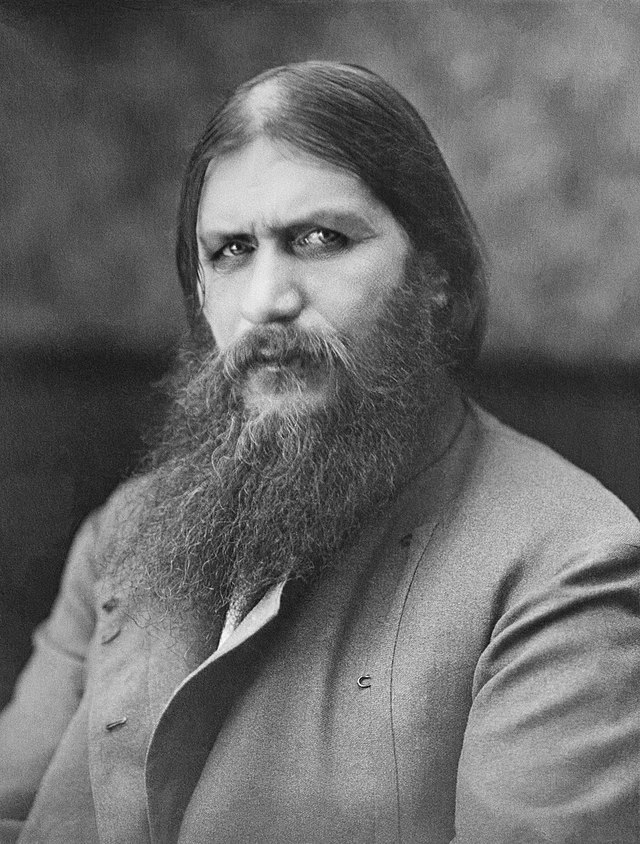The Devil-Monk who didn't want to die
The end of Rasputin

Grigori Rasputin in a photo from 1915 - Wikicommons
Grigori Efimovich Rasputin (1869-1916) was summoned in 1907 to Tsarskoye Selo, the Tsar’s residence, to treat the young heir to the throne, Tsarevich Alexei, who suffered from hemophilia. Using his healing abilities through prayer, Rasputin advised the Tsarina and the Tsar to stop giving Alexei aspirin, which the doctors had prescribed but which worsened the condition by causing blood clotting. Shortly after halting the aspirin, Alexei’s health improved, which gained Rasputin favor with the Romanov family. Through his charisma, Rasputin found a place within the royal family and exerted influence over the imperial court and the Romanovs.
His power extended into areas such as ministerial appointments, organizing gatherings that included debauchery, and attracting crowds to his home seeking his healing. Rasputin’s growing political and religious influence intensified the animosity toward him among the Tsar’s loyalists. This was true after 1915, when Tsar Nicholas II went to the front lines to lead the military, leaving the governance of Russia to the Tsarina, who was now under Rasputin’s sway.
By 1916, it was decided that Rasputin had to be eliminated to free the Tsar from his influence. On the night of December 16-17, Prince Yusupov, along with Dr. Lazovert, visited Rasputin’s house and took him to Yusupov’s palace. Rasputin was seated in a soundproof room with 4 bottles of wine. Waiting nearby were other conspirators, including Prince Nikita and Grand Duke Pavlovich. Yusupov offered Rasputin pastries and wine laced with cyanide, which Rasputin consumed without showing signs of poisoning. After an hour, astonished by Rasputin’s resilience, the conspirators decided to shoot him. Though wounded, Rasputin did not die. He attacked Yusupov and tried to escape but was shot again, this time in the kidney. Outside in the freezing cold, he was finally struck with a bullet to his right eye, which killed him about 20 minutes later. His body was then thrown into the Neva River.
Rasputin died only after enduring a dose of poison and gunshots that would have killed any ordinary man. His prophecy—that his death would also signal the downfall of the Tsars—came true 2 years later.
NIcolai Lilin, Rasputin, l'angelo dell'Apocalisse, Piemme, 2024
Fabrizio Dragosei, La Rivoluzione Russa e la fine dei Romanov, Rizzoli, 2022
2025-04-15
Salvatore Ciccarello
